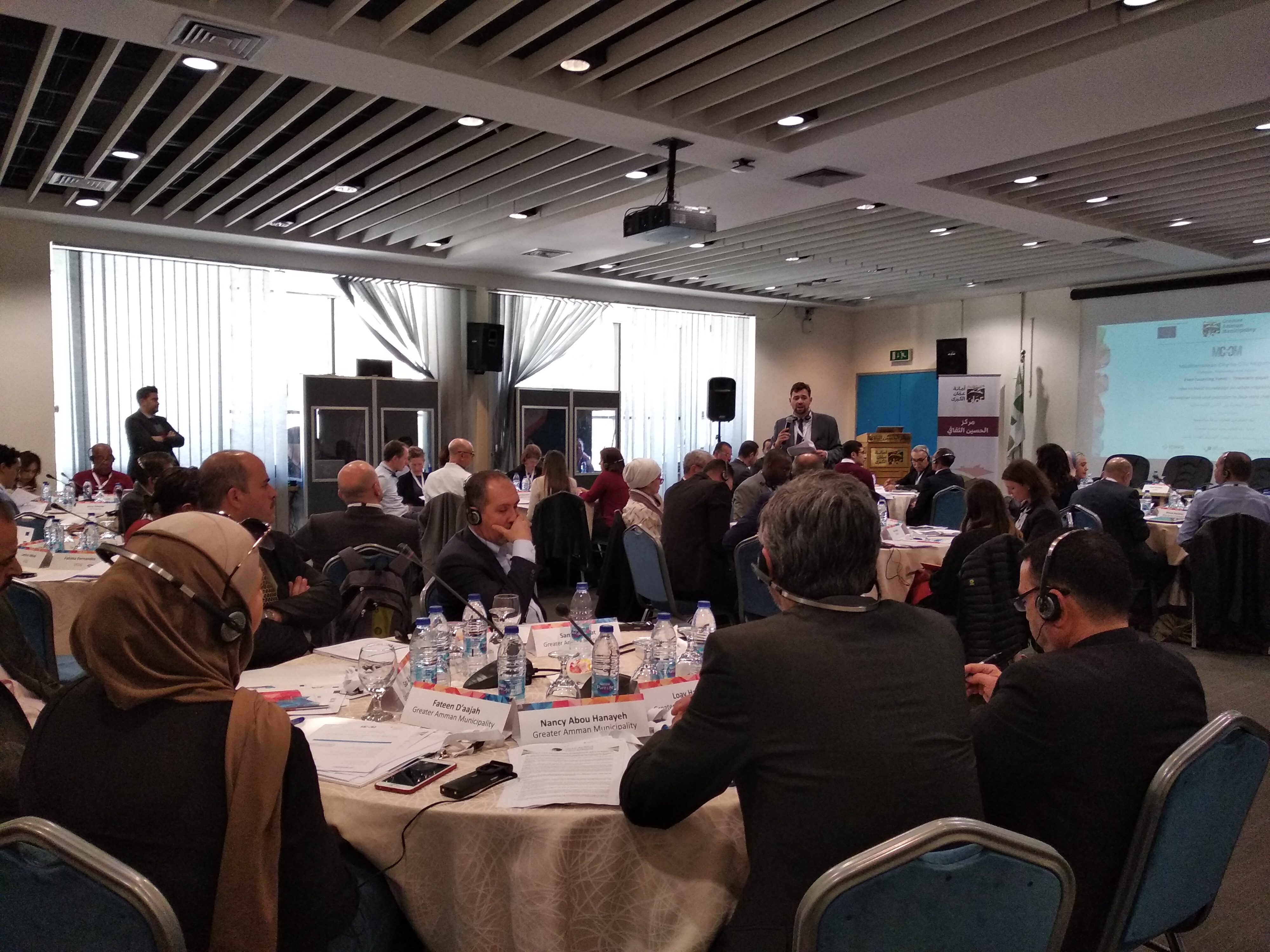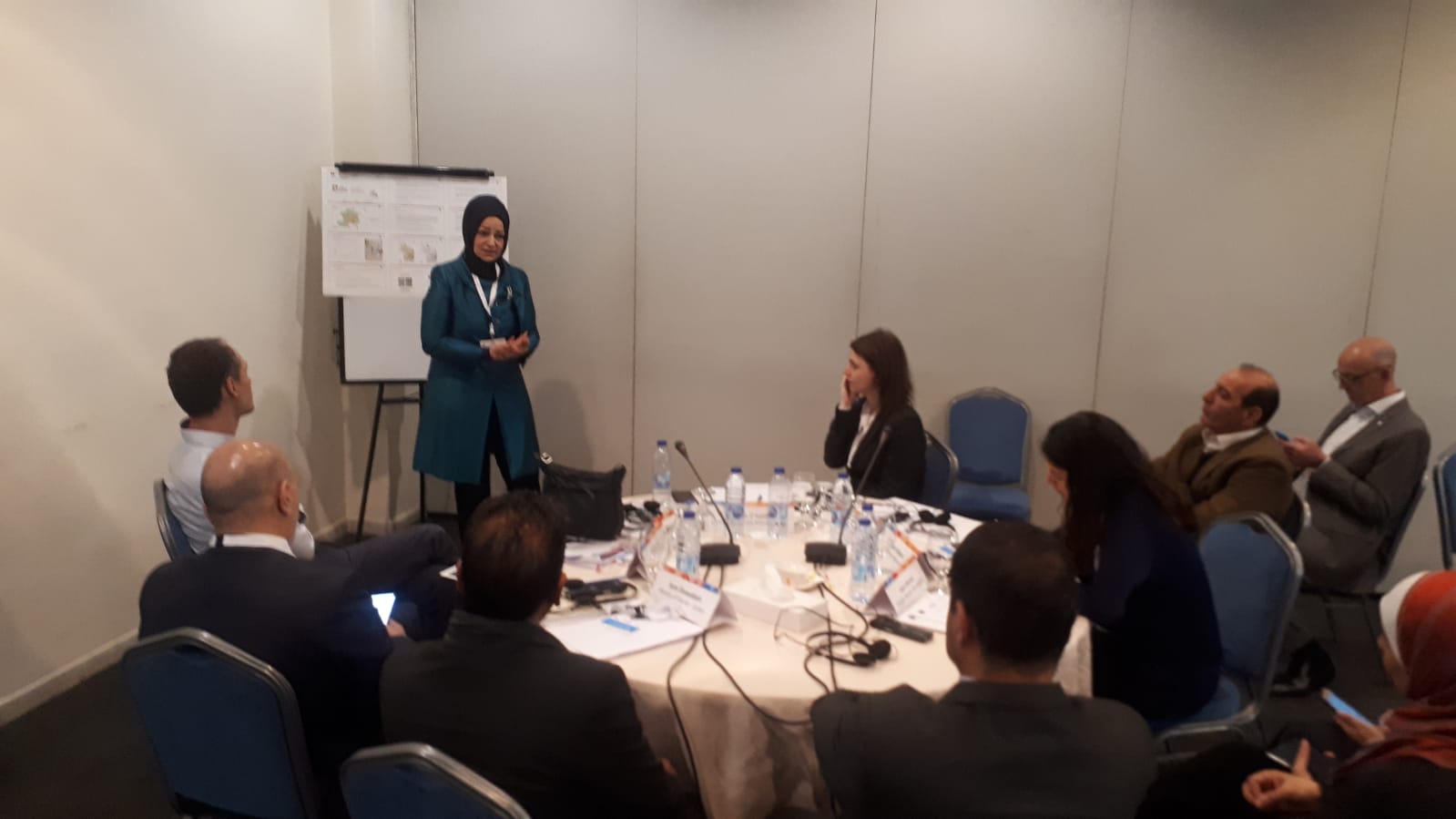Mediterranean local representatives reflect on data processing in urban migration management
25.03.2019
On 19 and 20 March, the eighth peer-learning event of the Mediterranean City-to-City Migration (MC2CM) project brought together more than 50 local representatives and experts of Mediterranean cities in Amman (Jordan) to exchange experiences on the collection and processing of migration-related data. In order to promote inclusion and social cohesion in their cities, participants shared practices and visions on the importance of developing evidence-based migration policies against harmful stereotypes and narratives.
Mediterranean cities face the double challenge of guaranteeing the Right to the city to newcomers while preserving social cohesion and strengthening inclusion in a context of growing hostile and uninformed discourses towards migration. On top of this, the lack of tools enabling them to gauge the dimension and characteristics of the migratory phenomenon in their territory represents an additional barrier. The peer-learning event “How to build knowledge on urban migration: innovative tools and practices to face data challenges” fostered discussion among the cities participating in the MC2CM project about local mechanisms to fill the empirical gap that often hinders the design of public policies adapted to the profile and needs of the population.
 Over the course of five sessions including presentations and debates on theoretical issues and case studies, representatives from 13 cities proposed frameworks for action and debated on mechanisms and tools to implement them. In this regard, the importance of aligning local and global indicators was emphasized, as accuracy, timeliness and comparability were highlighted as essential features of relevant data for evidence-based policy-making. Participants agreed on the importance of creating spaces of trust and adequate welcome structures to facilitate the access to newcomers irrespectively of their legal situation. In this vein, the importance of implementing geographic information collection systems and the relevance of urban planning in favor of social cohesion was also underlined.
Over the course of five sessions including presentations and debates on theoretical issues and case studies, representatives from 13 cities proposed frameworks for action and debated on mechanisms and tools to implement them. In this regard, the importance of aligning local and global indicators was emphasized, as accuracy, timeliness and comparability were highlighted as essential features of relevant data for evidence-based policy-making. Participants agreed on the importance of creating spaces of trust and adequate welcome structures to facilitate the access to newcomers irrespectively of their legal situation. In this vein, the importance of implementing geographic information collection systems and the relevance of urban planning in favor of social cohesion was also underlined.
Representatives from Bilbao, Gaziantep, Oujda, Rabat, Ramallah, Vienna and the Association of United Municipalities and Cities of Cameroon (CVUC) presented seven practices that allowed the participants to get closer to the concrete realities of data management in these cities, while exposing their visions about the dynamics at play in their own municipalities. Besides, in line with the objectives of the second phase of the MC2CM project, a working session was held focusing on the identification of indicators to evaluate the implementation of some of the recommendations agreed in the first part of the project by the cities of the network. Participants learned also about the Amman Urban Observatory, a department in the Jordanian capital dealing with the development of urban indicators.

On a different note, a Tunisian delegation formed by representatives of Sfax and Sousse attended a transfer session on 21 March to learn in detail about various local initiatives of the Greater Amman Municipality (GAM) with the aim of opening ways to replicate them in their cities. In this regard, the delegation had the occasion not only to explore Amman’s resilience strategy and several participatory urban planning projects, but also to visit the City Hall and the Hashmy Janoubi Community Center. There they had a first-hand look at the work of the International Rescue Committee (IRC) in favor of social cohesion through activities addressed to local citizens and refugees.
The next P2P event of the MC2CM project, to be held in Sfax at the end of June 2019, will focus on cooperation mechanisms between local authorities and civil society in the field of migration.
About the MC2CM project
The MC2CM project aims to improve the inclusion and integration of migrants at city level in the Southern Mediterranean region, including through access to human rights. The MC2CM project was launched in February 2015 and will run for three years. It is led by ICMPD (the International Centre for Migration Policy Development) with UCLG and UN-Habitat acting as project partners.
The project has entered its second phase (2018-2021) in which cities will use their unique role to enhance the benefits of migration, at the local and national levels.